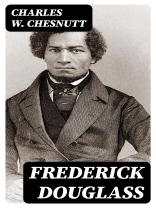In his profound work ‘Frederick Douglass, ‘ Charles W. Chesnutt offers a nuanced exploration of the life and legacy of one of America’s most influential abolitionists. Written in a reflective and engaging style, the book weaves together historical narrative and personal interpretation, illuminating Douglass’s complex character and his pivotal role in the fight for emancipation. Chesnutt contextualizes Douglass’s experiences within the broader landscape of 19th-century America, providing insights into the socio-political dynamics that shaped his life and activism, while also addressing themes of identity, race, and resilience. Chesnutt, himself born to free parents of mixed-race heritage in the antebellum South, faced the societal contradictions of race and identity that Douglass articulated so compellingly. His lived experiences deeply informed his scholarship, granting him a unique perspective on the enduring struggles against racial injustice. This intellectual lineage, coupled with Chesnutt’s literary prowess, positions him as an apt chronicler of Douglass’s significance, allowing readers to appreciate the intricate interplay between personal narrative and historical context in shaping American identity. ‘Frederick Douglass’ is a must-read for anyone seeking to understand the complexities of the American struggle for equality. Chesnutt’s eloquent prose and insightful analysis invite readers to engage with Douglass’s message in a contemporary light, fostering deeper reflections on race, agency, and the ongoing quest for justice. Through this powerful biographical account, readers will not only discover the life of Douglass but also find inspiration for their own fight against social inequities.
A propos de l’auteur
Charles Waddell Chesnutt (1858–1932) was a pioneering African-American author, essayist, and social critic, noted for his significant contributions to American literature during the post-Reconstruction period. With a literary career that challenged the racial norms and complexities of the South, Chesnutt was one of the first African-American writers to gain national recognition. Though the work ‘Frederick Douglass’ is not one of his noted titles, and may be incorrectly attributed, Chesnutt’s oeuvre includes such notable works as ‘The Conjure Woman’ (1899), ‘The Wife of His Youth and Other Stories of the Color Line’ (1899), and groundbreaking novels like ‘The House Behind the Cedars’ (1900), ‘The Marrow of Tradition’ (1901), and ‘The Colonel’s Dream’ (1905). His writings are remarkable for their exploration of race, identity, and social dynamics. Chesnutt’s use of dialect and his portrayal of African-American folk culture were innovative for their authenticity and depth. Chesnutt was posthumously awarded the Spingarn Medal by the NAACP in 1928 for his achievements in literature. His literary legacy provides an invaluable insight into the African-American experience of his time and continues to receive scholarly attention for its depth and foresight.












